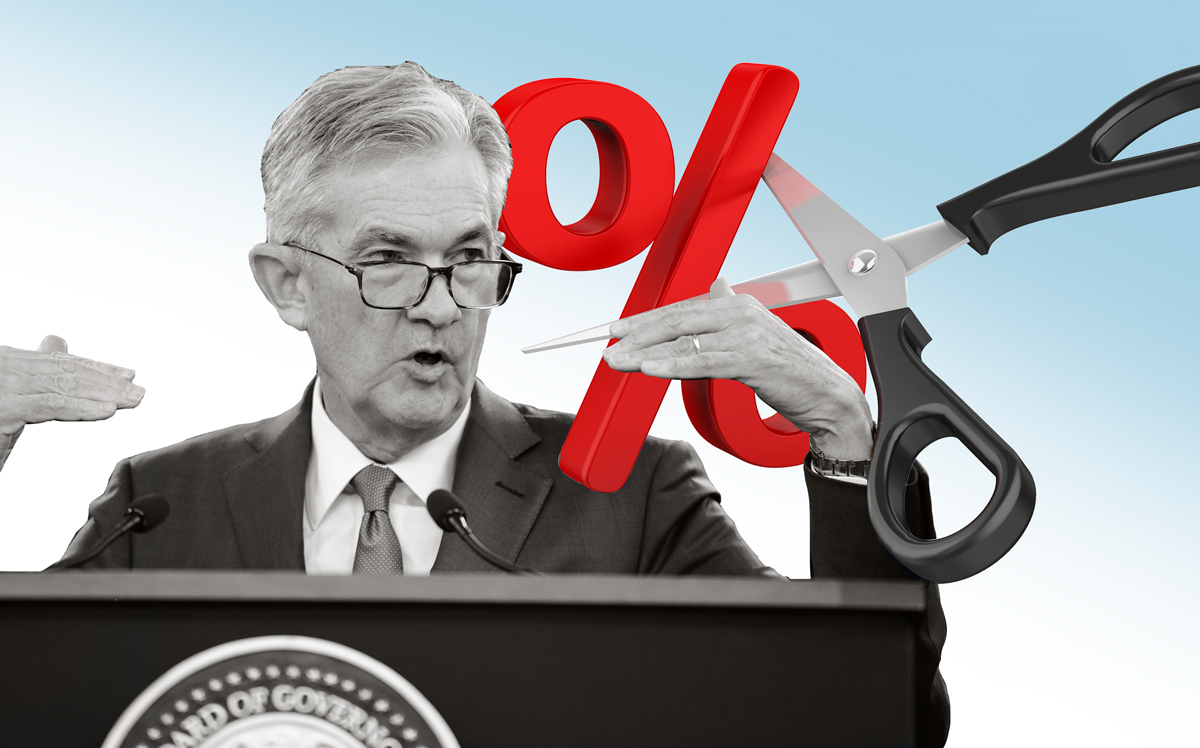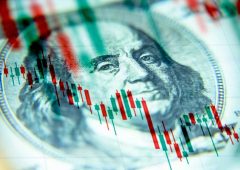No Rate Cuts in Sight: Bank of America Predicts Fed Will Hold Firm in 2025
15.01.2025 10:30 1 min. read Alexander Zdravkov
Despite earlier optimism, it sees that the chances of more rate cuts in 2025 are becoming less likely.
Despite Wall Street’s hopes, stubborn inflation, a resilient labor market, and growing federal debt make any easing of monetary policy unlikely. Bank of America economist Stephen Juneau predicts rates will hold steady, citing steady economic activity and inflation well above the Fed’s 2% target.
Recent data underscores the challenge. December’s producer price index (PPI) rose 0.3%, with annual core inflation hitting 3.5%, its highest since early 2023. The consumer price index (CPI) followed suit, signaling persistent price pressures. Meanwhile, the labor market added 256,000 jobs in December, pushing unemployment to just 4.1%, complicating the Fed’s dual mandate of controlling inflation while maintaining full employment.
Adding to the mix, the federal government’s debt crisis looms large. With a first-quarter deficit of $710.9 billion—a 39% jump from last year—and the national debt surpassing $36 trillion, rising interest costs are straining finances. Treasury yields are climbing, with the 10-year note hitting 4.8%, further increasing borrowing costs.
The Fed’s balancing act is clear: rate cuts risk reigniting inflation, while rising debt and spending make fiscal stability more challenging. For now, the central bank is expected to hold its course, prioritizing economic stability in the face of mounting pressures.
-
1
Russia’s Oil Revenues Strained as Exports Decline Again
24.06.2025 18:00 2 min. read -
2
Recession Fears Linger as Economic Signal Flashes Long-Term Warning
25.06.2025 9:00 2 min. read -
3
Robert Kiyosaki Predicts When The Price of Silver Will Explode
28.06.2025 16:30 2 min. read -
4
Gold Beats U.S. Stock Market Over 25 Years, Even With Dividends Included
13.07.2025 15:00 1 min. read -
5
Trump Targets Powell as Fed Holds Rates: Who Could Replace Him?
27.06.2025 9:00 2 min. read
Gold Beats U.S. Stock Market Over 25 Years, Even With Dividends Included
In a surprising long-term performance shift, gold has officially outpaced the U.S. stock market over the past 25 years—dividends included.
U.S. Announces Sweeping New Tariffs on 30+ Countries
The United States has rolled out a broad set of new import tariffs this week, targeting over 30 countries and economic blocs in a sharp escalation of its trade protection measures, according to list from WatcherGuru.
Key U.S. Economic Events to Watch Next Week
After a week of record-setting gains in U.S. markets, investors are shifting focus to a quieter yet crucial stretch of macroeconomic developments.
Robert Kiyosaki Predicts When The Price of Silver Will Explode
Robert Kiyosaki, author of Rich Dad Poor Dad, has issued a bold prediction on silver, calling it the “best asymmetric buy” currently available.
-
1
Russia’s Oil Revenues Strained as Exports Decline Again
24.06.2025 18:00 2 min. read -
2
Recession Fears Linger as Economic Signal Flashes Long-Term Warning
25.06.2025 9:00 2 min. read -
3
Robert Kiyosaki Predicts When The Price of Silver Will Explode
28.06.2025 16:30 2 min. read -
4
Gold Beats U.S. Stock Market Over 25 Years, Even With Dividends Included
13.07.2025 15:00 1 min. read -
5
Trump Targets Powell as Fed Holds Rates: Who Could Replace Him?
27.06.2025 9:00 2 min. read


